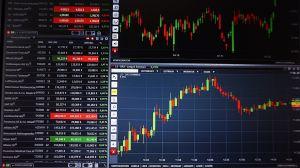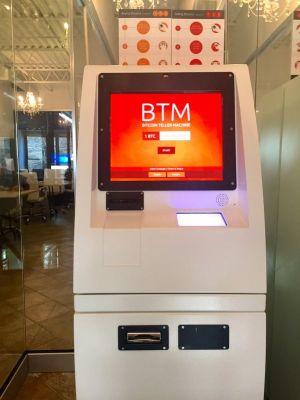
What is Cryptocurrency? It is a form of digital money, in short. For the long answer, keep reading our “What is cryptocurrency” guide.
More and more people and companies are starting to use it. Some of this money can be spent on the same goods and services we pay for with traditional “fiat” currencies – dollars, euros, yen, and so on. Some cryptocurrencies, though, are only for use in closed systems, to pay for a specific platform’s services. “What is cryptocurrency and how does it work” is a common question that our guides are striving to answer what is cryptocurrency for beginners.
The total value of all cryptocurrencies in use around the world reached nearly USD 600 billion by the end of December 2017, almost 40 times more than a year earlier. Some people buy cryptocurrency simply hoping its price will increase. But, setting speculation and investment aside, cryptocurrency is becoming increasing popular as a means of paying for goods and services. There are a number of reasons for that:
– It’s secure and impossible to counterfeit due to the complicated mathematics and military-grade cryptography that are involved.
– It’s decentralized and more efficient – you own your cryptocurrency and no bank or government is needed to issue the money, and no middleman is needed to transfer your funds. That can make your transactions cheaper and quicker (though not always).
– There are more and more opportunities to use cryptocurrencies to pay for goods and services all around the world.
– It helps people without access to traditional banking become part of the worldwide financial system.
– It’s programmable money which offers many more options for how it can be used and adapted to one’s needs.
– It offers new ways for businesses to reach new customers and raise capital.
– Getting started with cryptocurrency is becoming increasingly simple.
Basic facts you should know about cryptocurrency:
The best-known cryptocurrency is Bitcoin, which came into existence in January 2009 and marks the beginning of the rise of cryptocurrencies. But there were many unsuccessful attempts to create such currencies earlier. Cryptocurrency history is said to begin with the creation of Bitcoin.
Bitcoin was created by Satoshi Nakamoto, though no one knows whether that is a he or a she or even a group of people.
There are now more than a thousand cryptocurrencies in use. They can be grouped into “coins” (Bitcoin plus other currencies collectively known as altcoins) and tokens, such as those used to pay for the services of a specific blockchain based platform. Altcoins offer varying levels of anonymity, transaction speed and other features. Also, the word “coin” is used as a metaphor, as there no coins on blockchain – it is only an entry in a ledger.
Questions like “how does cryptocurrency work” will be answered in several of our guides. Almost everything you need to know about Cryptocurrency is answered on our website. If you don’t find the information you need – just let us know!
What to consider when choosing a crypto exchange
Before jumping into any random exchange someone recommended, you should consider many factors. The most important ones include exchange security, liquidity, fees, history, markets, and user experience. Finding the best cryptocurrency exchange for you can take some time and effort, but it is totally worth it.
One easy way to do it is by reading expert reviews. To see our reviews and comparisons of top exchanges follow this link.
It’s also important to distinguish crypto-to-crypto and crypto-to-fiat exchanges. The crypto-to-crypto exchanges list only cryptocurrency pairs, while fiat-to-crypto exchanges are let you buy and sell cryptocurrencies with dollars, euros, pounds, yen, and other currencies.
How to pick the best cryptocurrency exchange?
When choosing an exchange, keep in mind that your mileage may vary. You may want an exchange that supports specific altcoins, trading pairs, and additional features such as margin trading or over-the-counter (OTC) deals.
Once you find an exchange that meets your basic requirements, check these other aspects as well:
Security:
Security is by far the most important factor of an exchange. If an exchange is insecure, your funds could be stolen, leaving any other advantages it offers worthless. No one wants to lose his or her money, so In this respect, consider the following aspects.
Technology:
— The exchange’s web address should start with HTTPS. Avoid HTTP connections.
— For login safety, it should use two-factor authentication (username and password plus a piece of information only you have).
— Customer deposits should be stored offline, in “cold storage.”
— Auditing programs that monitor exchange activity 24/7 and SMS and email alerts all give exchange customers additional security guarantees.
— You may want to whitelist your IP address or withdrawal wallet addresses for the maximum security.
Legal aspects:
— It’s recommended you use an exchange from the same country you are, as that can make it easier to comply with regulatory changes. It’s also possible, though, to use other exchanges in other countries. Note that some exchanges support only a limited number of countries.
— Some exchanges may insure their funds, meaning that in case they lose your funds, you may be reimbursed.
Transparency:
— Does the exchange reveal its owners, headquarter address, and the members of its team?
— Transparent exchanges also publish their cold storage address or help check their reserves in other ways, like audit information.
In any case, don’t leave your funds on any cryptocurrency exchange longer than necessary. Keep only the funds you need for trading. Most exchanges are like honeypots for hackers. Since they must keep many digital assets in one place, hackers create the most elaborate schemes to steal exchange user’s funds. Hence, it’s better to store the rest of your bitcoin in your private wallets. (You can also read more about Bitcoin wallets here.)
Other important things to consider for when you are learning how to choose a crypto exchange are:
Liquidity:
The higher the trading volume is, the more liquid specific exchange is. Liquidity makes it possible to complete transactions faster, more easily and without having to deal with price volatility. Also, see whether an exchange offers “locked-in” pricing, which guarantees you the price at the time of your transaction even if it doesn’t settle immediately.
Be aware that liquidity can be different for different trading pairs. It can be high for BTC/EUR, for example, but low for BTC/GBP. You can check the exchanges with the highest trading volumes here.
Fees:
— Compare all the fees an exchange charges. They’re usually less than 1% per transaction and may decrease if your trading volume increases.
— Check the withdrawal fees. Some exchanges are known to offer unreasonably high withdrawal fees for specific altcoins.
— Look into deposit fees, too. Many exchanges offer a quick and convenient way to buy cryptocurrencies with a credit or debit card, but such purchases also come with a 5% or higher fee.
User experience:
— If you care about anonymity, you probably won’t choose an exchange that requires you to reveal much about your identity;
— Is the user interface simple and easy to use on both a desktop and a mobile device?
— What do other users say about the benefits and drawbacks of a specific exchange, the support it offers and so on? Check community forums like Bitcoin Reddit or Bitcoin Forum.

Recommended cryptocurrency exchanges and brokers
Most exchanges differ from one another in the aspects mentioned above. Some are designed for beginners, while others are made for wealthy advanced traders.
Nevertheless, some of the best cryptocurrency platforms include:
Binance — the worlds largest cryptocurrency exchange with a wide selection of cryptocurrencies.
eToro — an ideal broker for a starting investor who is interested in cryptocurrencies as well as traditional financial instruments.
BC Bitcoin — another quality brokerage service for new crypto investors who might want to invest larger sums of money.
Bitfinex — an exchange for seasoned and institutional investors.
Kraken — an excellent cryptocurrency exchange for both beginners and experienced traders.
HitBTC — a crypto-to-crypto exchange with the largest selection of altcoins.
Bitstamp — a fiat-to-crypto exchange where you can buy Bitcoin (BTC), Ethereum (ETH), Litecoin (LTC), Ripple (XRP), and Bitcoin Cash (BCH) cryptocurrencies.
Bittrex — an all-around cryptocurrency exchange with many altcoin markets.
KuCoin — a beginner-friendly crypto exchange for small-cap coins and tokens.
Poloniex — a convenient crypto assets exchange with more than 60 assets to trade.
BitMex — a contracts trading platform which lets you trade cryptocurrency futures and perpetual contracts.
Coinbase — a beginner-friendly gateway exchange which offers one of the fastest ways to buy cryptocurrencies.
Coinbase Pro — a more advanced version of Coinbase for those who want to take their trading into another level.
For complete reviews of each exchange, please see our detailed reviews.
Be aware that prices on different exchanges differ, too. You can find the best sell/buy prices here.
Alternative way to buy and sell cryptocurrencies
In case you are not able to open an exchange account or for some reason the access to cryptocurrency trading is restricted, you can use services like Local Bitcoins to meet people in your area and purchase Bitcoins or other cryptocurrencies offline.
Another alternative is to use a Bitcoin ATM. You can a map with Bitcoin ATM’s at Bitcoinatmmap.com.

Bear in mind that Bitcoin and its infrastructure is still being developed so things might change quickly. There are already numerous decentralized exchanges in the talks, and many cryptocurrency experts believe they will change traditional exchanges for good.
Besides, regulations may be introduced, and other new technologies or new problems may arise. So follow the news and stay up to date. The best Bitcoin or cryptocurrency exchange is different for everyone, so make sure to do your own research and stay safe while doing so.
![]()



